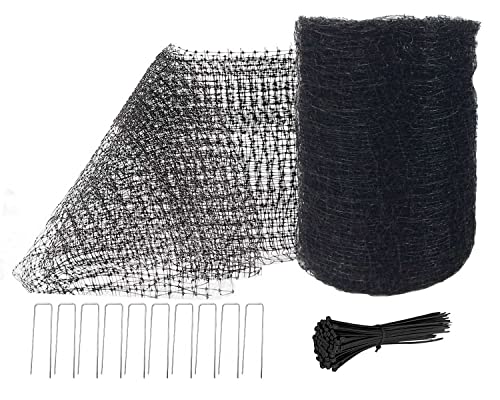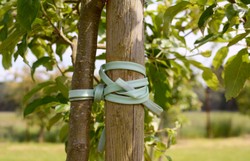It is not the first time in which Dustytoes has set me thinking, and this time was when she commented that plants would grow but slowly in the summer heat of her Florida home. I began to think of people who have gardened in conditions harsh for some or all of the year. In the thumbnail above you see Skellig Michael, off the lovely coast of Kerry, where until the thirteenth century a small community of Irish monks lived quietly, producing food for themselves from a small garden walled on the side to prevent accidents and with soil made from seaweed, compost and dung. It was not failure of the garden that drove them off, but climate change that saw winter storms sending waves over even the top of the isolated rock. But for several hundred years the garden thrived and fed them.
The problems in a garden occur when soil, water, heat and wind are not what the gardener needs. I was talking some years ago to a young man, a colleague of my son at agricultural college, whose father was a head gardener on an estate in North East Scotland, an area which suffers cold winds driving down from the north east, always the coldest wind in Britain. Try as he might, the head gardener could not grow pear trees there, yet a hundred miles south they grow well enough. The pear needs conditions warmer than apple trees do, so the cold and the wind were too much for it. Solution, don't grow pear trees there. Gardeners need to know when a plant is not suitable for their conditions. There was a case recently when Adam Henson, a farmer who appears weekly on television, tried to grow rice in a greenhouse in South West England,which is quite warm compared to other areas of the county. But he failed, because although he controlled the heat, the light levels were not sufficient for rice.
Yet the Queen Mother, the mother of Elizabeth the Second, had a lovely garden in the grounds of the Castle of Mey, on the north coast of Scotland, which she bequeathed to the Castle of Mey Trust on her death and which is now at times open to the public. The castle is subject to fierce winds and cold, but her gardeners created a micro-climate within its walls, using the high castle walls to shield the plants from the wind, so now it thrives with flowers. So the secret of gardening in difficult conditions is either to grow plants suitable for the area, or to create a micro-climate that suits the plants that you want to grow.
Beth Chatto, an expert gardener, lives in Essex, England's driest county, in the South East of Britain. She created the dry garden, made up of plants that needed little water. She also used mulch, in this case made of stones,that covered the soil and retained what moisture there was. Her book, The Dry Garden, is a record of her endeavours and is a gardening classic. Yet in North West Scotland the magnificent Inverewe Gardens was created on an infertile piece of rock by the sustained endeavours of the laird, Osgood McKenzie, whose men spent years transporting soil to the rocky place and planting trees, shrubs and flowers to the garden to take advantage of the fact that despite being barren, North West Scotland is blessed by the warm waters of the North Atlantic drift. So another secret is to take advantage of what you have. And then you need to work at it. Talent plus effort equal success.











 TheThousand Year Gardenon 11/26/2025
TheThousand Year Gardenon 11/26/2025
 Women of the Gospelson 10/11/2025
Women of the Gospelson 10/11/2025
 Religious Gardenson 08/25/2025
Religious Gardenson 08/25/2025
 Doctor of the Church: John Henry Newmanon 08/03/2025
Doctor of the Church: John Henry Newmanon 08/03/2025



Comments
I have never heard of these juices
Thank you for your comment below in answer to my previous observation and question.
Online sources consider as healthily, tastily drinkable sweet-potato juice from processed sweet-potato liquids, sweet-potato latte and sweet-potato smoothie.
Do sweet-potato juice, latte or smoothie exist in British-Isles-er cuisine? (And if so, would you drink them?)
I do not enjoy potato wine very much.
Thank you for your comment below in answer to my previous observation and question.
Online sources describe sweet potato wine as drinkable with such additional ingredients as raisins and sugar (either grandulated or light-brown). They engender reactions from most to least enthusiastic.
Is potato wine somewhat or very drinkable?
While we have potato wine I have never heard of sweet potato winw
Thank you for your comment below in answer to my previous observation and question.
Your answer catalogues boiling, cooking, frying sweet potatoes. Such processing considers sweet potatoes as edibles.
Do British Isles-ers ever consider sweet-potato processing into something drinkable?
We do not eat sweet potatoes raw, only cooked.boiled or fried mainly.
Thank you for your comment below in answer to my previous question.
Sweet potatoes are edibles that I associate with some processing, such as baking, cooking, frying, mashing. They are not edibles that I eat fresh or raw. And you cluster your daughter-in-law in the processing group what with cooking them.
Online sources disagree. Some feature sweet potatoes as edible fresh or raw, others not.
Might they matter to British Isles-ers as fresh, as fresh and processed or only as processed?
She just cooks them.
The computer crashed before I commenced another component of my comment below.
Sweet potatoes particularly appeal to some Unitedstatesians as alternative pies to mince-meat and pumpkin Thanksgiving pastries.
What does a Portuguese cultural heritage ask of your Portuguese daughter-in-law in terms of eating, liquifying or processing sweet potatoes?